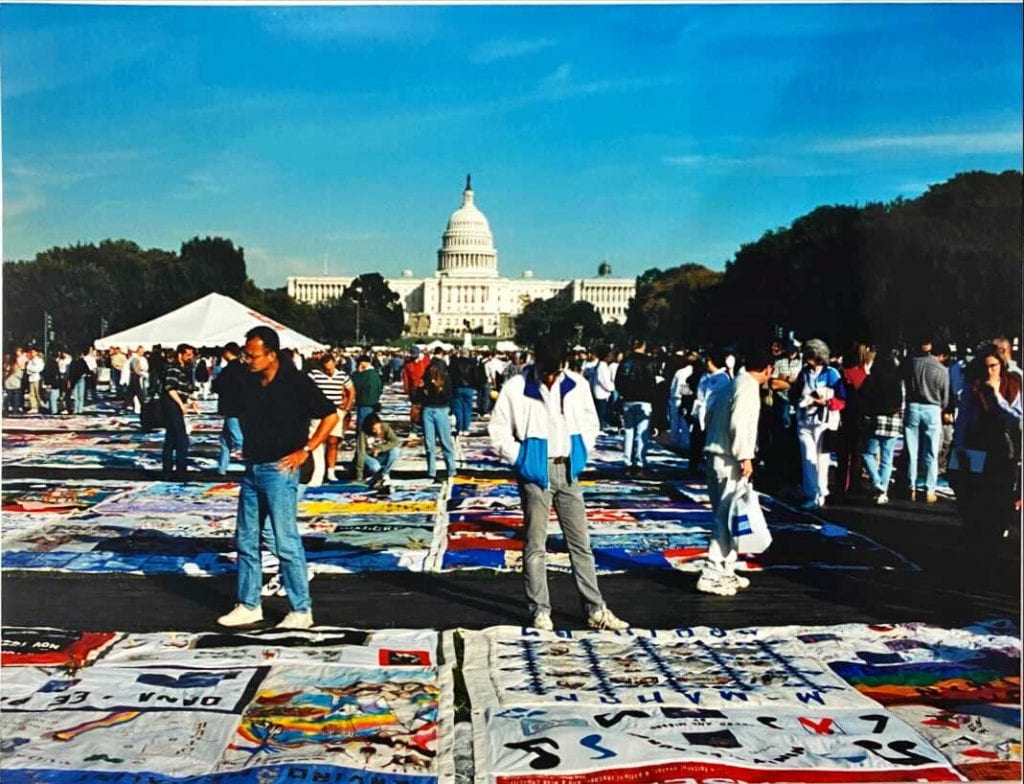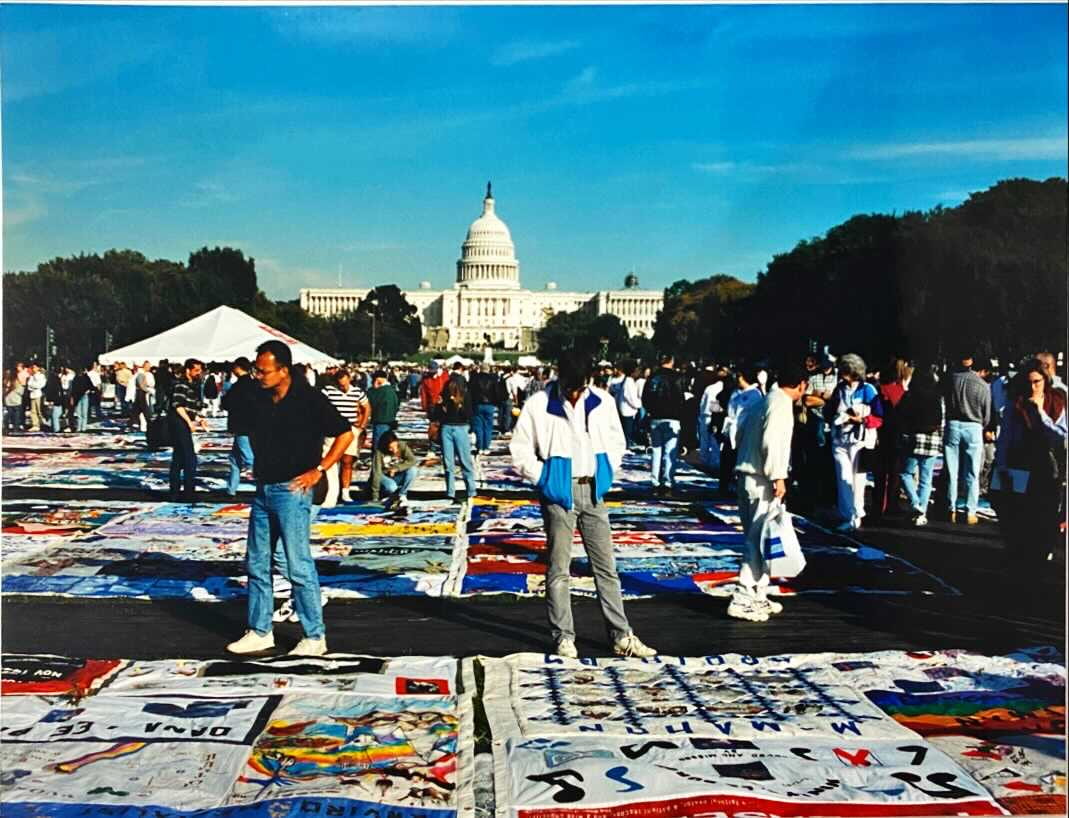by Sahana Shridhar, Class of 2022, Industrial and Labor Relations

These photographs were taken during the AIDS Memorial Quilt display in Washington, D.C., during October of 1996. The first photograph includes a patch of the quilt that states “students, faculty, alumni, staff, you are remembered, Cornell University” with an illustration of the McGraw Tower on the patch as well (seen in a close-up below). The third photograph depicts the totality of the quilt with the United States Capitol building in the background. Beginning in the 1980s and into the 1990s, the AIDS epidemic spread throughout the United States and impacted an entire generation of queer individuals. The loss of life due to AIDS was largely ignored by the U.S. government in part due to homophobia, and the work of queer activists compelled the government to pay attention.

The AIDS Memorial Quilt was a project borne out of activism. Beginning in San Francisco, local activists began carrying placards with the names of those who had died from AIDS during protests. Over time, this turned into the AIDS Memorial Quilt–a display of 44,000 panels in memory of the 448,000 people in the United States who have died from AIDS. In a time of rampant homophobia, the AIDS Memorial Quilt served, according to historian Christopher Cappozola, as an act of “personal memory and collective mourning,” as well as a form of protest. Overall, the creative design of the quilt and its egalitarian nature provided a compelling medium of public protest in weaving together the stories of individuals who had been impacted by AIDS.

The effects of the AIDS epidemic extended to campus life as well. A Cornell Chronicle article details the inclusion of an “AIDS & Society” seminar, where activists from ACT UP, AIDSWORK, and more present as guest lecturers to educate students about the medical and societal effects of the disease. Furthermore, as the photograph shows, the loss of life included individuals from Cornell who were memorialized with their own panel in the AIDS Memorial Quilt. In 1994, individuals across campus gathered in Willard Straight for a viewing of the quilt in a highly emotional setting as people came together to share the names of those they had lost. Later on, as detailed in the Cornell Chronicle, panels from the quilt were on display at the Johnson Museum of Art on campus; however, it is unclear whether the panels displayed were made by the Cornell community.
Sources:
Bennet, Lisa. “AIDS on Campus.” Cornell Chronicle, April 23, 1992. https://ecommons.cornell.edu/handle/1813/25433
Cappozola, Christopher. “A Very American Epidemic: Memory Politics and Identity Politics in the AIDS Memorial Quilt, 1985-1993.” Radical History Review, no. 82 (2002), 91-109.
